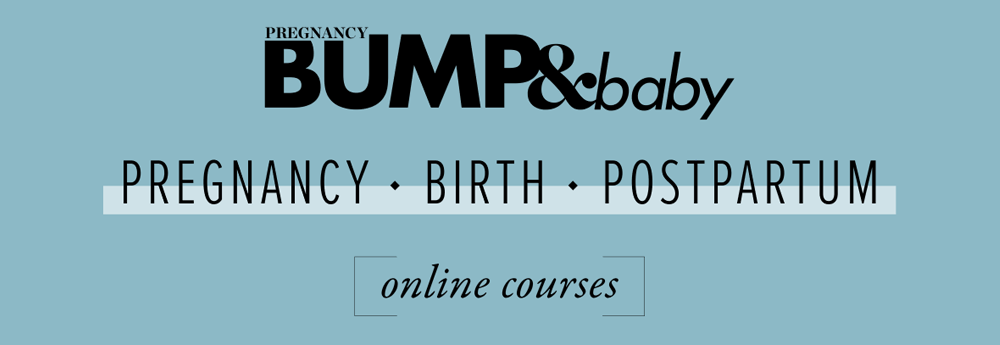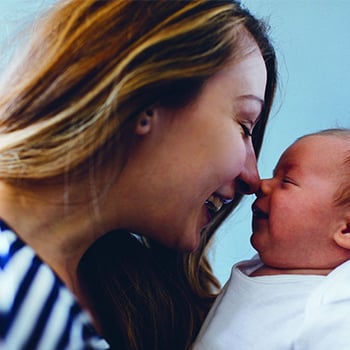
Jojo Hogan, postnatal doula, massage therapist, yoga teacher, and former owner of Bella Mama, explains why caring for mums in the early weeks of motherhood is so important.
A few weeks after the birth of my first son, the midwife arrived to find both of us crying. When asked what the matter was, I explained through my tears that unfortunately I had made a huge mistake. I thought I had wanted a baby but, in actual fact, I didn’t want the baby any more, it was far too hard, and I asked her if she wouldn’t mind returning him or giving him to any passing gypsies. I was kind of joking at this stage (kind of!) and laughing through my tears, but I was also wracked with guilt at how I was failing this beautiful boy who had been gifted into my care.
Luckily, she was a very experienced and wise midwife. She looked benignly at me and said, “That’s totally normal.”
“Really?” I replied. “But I thought I was the worst mother in the world!”
“No,” she said. “You are just grieving for your past life.”
Eighteen years later, I still remember those words and my feelings of exhaustion, overwhelm, and isolation. They say that it takes a village to raise a child, but although I was actually living in a literal village – a small hamlet of only 10 houses in the beautiful English countryside, surrounded by friendly neighbours willing to lend a hand – it never occurred to me that I would need extra hands to care for this tiny baby. Surely babies don’t need much? They sleep a lot and feed, don’t they? It seemed everyone else was getting on with this motherhood gig just fine. Why was I struggling, and why did it feel so hard and lonely?
Looking to other cultures
Fast-forward 15 years, and I’m back in New Zealand, the country where I grew up, and have focussed my work on my passion for caring for mothers and babies during pregnancy, birth, and the first few months of motherhood. However, after a decade of running the Bella Mama Spa & Wellness Centre, I noticed a worrying trend. Women who enjoyed happy, healthy pregnancies seem to be falling apart after the birth of their babies. They’re shocked and stunned by the changes in their bodies, and struggling with postpartum mood disorders such as anxiety and depression, breastfeeding issues, and exhaustion. Instead of feeling joyful at their baby’s birth, they were overwhelmed and depleted.
But when I spoke to mothers who had different cultural backgrounds, they often said how much they were looking forward to the weeks after their birth. How their mother or grandmother was coming to care for them, to feed them nourishing food, to massage them, and help to care for their baby while they focussed on rest, recuperation, and rejuvenation after the birth. How blissful this seemed compared to the Western paradigm of “bouncing back” as quickly as possible after only a night or two in hospital with pressure to start exercising, running a household, and regaining your figure as soon as possible.
The moment a child is born the mother is also born. She never existed before. The woman esisted, but the mother, never. A mother is something absolutely new.
Osho
Postpartum care: mothering the mother
In her beautiful book The Golden Month: Caring for the World’s Mothers after Childbirth, Auckland-based acupuncturist and postpartum specialist Jenny Allison talks about the importance of the weeks following birth.
“The postpartum is a unique period of transition in a woman’s life,” she explains. “In just a few weeks, as she recovers her strength and learns to mother her new baby, a woman’s body and mind undergo changes of unparalleled intensity. She enters a rite of passage which literally changes who she is, and learns many things about life and herself in the process.
“She also begins a relationship with her newborn which will be a template for the baby’s trusting relationships with other human beings, in a bond which will last their lifetimes.”
Jenny goes on to explain that care of mothers after childbirth is therefore of universal social importance. “Good care in the six-week postpartum period is crucial to the mother’s heath and wellbeing and can have lasting benefits, not only to her health and relationship with her newborn baby, but more widely, to her family and community as well.”
This sentiment is shared not only in traditional Chinese philosophy, but also around the world, including in Asia, South America, Africa, and the Pacific Islands.
Birth, bonding, and breastfeeding
Julia Jones, the founder of the Newborn Mothers Collective and the author of Nourishing Newborn Mothers: Ayurvedic Recipes to Heal Your Mind, Body and Soul after Childbirthstates, “The only two jobs that a newborn mother should have is to fall in love with her baby and to learn how to breastfeed (if she chooses to).” Modern-day neuroscience is now confirming what women who care for new mothers and babies have intuitively known all along: That when a new mother is cared for lovingly and respectfully, when she is warm and well-nourished, when she has the time and space to rest deeply and gaze into her baby’s eyes as she feeds, then oxytocin, the hormone of love, connection, and breastfeeding will increase in her body, facilitating the process of bonding the two together in a beautiful dance that will last a lifetime.
Conversely, if a new mother is stressed, exhausted, hungry, and unsupported, then stress hormones such as cortisol and adrenaline will have an adverse effect on her oxytocin levels, potentially making the bonding between mother and baby more difficult and/or affecting the production of breast milk.
In my role as a postpartum doula I often describe myself as “the facilitator of oxytocin”: Celebrating, caring for, and holding space for a new mother so that she can do the important job of falling in love with her new baby.
How to plan your postpartum sanctuary
It is unfortunate that many of us do not have the means or support systems to enjoy our 40 days of rest. However, we can and should prioritise our postpartum plan in the same way as we do our birth plan. You might not be able to include a daily massage, but there are definitely ways that you might prepare for this time to be as nourishing and nurturing as possible. Here are a few tips to consider.
Gather your village
As I often say to my students, being a good parent is far too many jobs for two people, let alone one. It truly does take a community to support your when you bring your baby home. If you don’t have close family or friends around, you may need to think outside the box. Your village can be as diverse as your midwife, your Plunket nurse, your work colleagues, a cleaner occasionally, and a meal train or delivery service now and then. Anything that will make your life easier and ensure you are well cared for.
Allow yourself a retreat
Think of the postpartum “sacred window” of 40 days as a time of sanctuary; A “staycation”, as it’s sometimes called, in your own home snuggled up with your newborn and being cared for by others. Think of all the things that bring you peace and joy, and do those things. Watch funny movies (laughing increases oxytocin and our happy hormones), nap when your baby naps, surround yourself with beautiful things, and call on helpful people. There will be plenty of opportunity to take baby out into the world and to receive visitors in the coming days, but make this first few weeks a time just for the two of you and those closest.
Ask for help!
This one is the most important and also, for many of us, the hardest thing to do. When someone asks you if you need anything, your answer should always be yes! Then you can figure out what it might be afterwards. Hint: It’s usually nutritious food, but it might also be a pair of loving arms to hold baby while you sleep, some housework, or the shopping picked up. Let go of your reservations and wholeheartedly allow yourself to be vulnerable and in need of TLC. Consider hiring a postpartum doula to give you focussed care and support over these important few weeks.
The postpartum doesn’t have to be a time of exhaustion and stress, but instead can be honoured and appreciated as a time of deep transformation and dedicated care, not only for the newborn baby, but for the newborn mother too.
BUMP&baby
BUMP & baby is New Zealand’s only magazine for pregnancy and early babyhood. Our team of mums and mums-to-be understand what it’s like to be pregnant in this connected age, and that’s why BUMP & Baby online is geared toward what pregnant women and new mums really want to know.
Other articles of interest
How babies learn language
Learning a language involves listening, understanding, and speaking. Primary caregivers play a pivotal role in guiding the way a baby learns these processes.
Expert morning sickness tips that really work!
You’re pregnant, yay! Congratulations! Unfortunately, around week 6 of pregnancy, the symptoms of morning sickness can start. It usually subsides around week 14-16 of pregnancy.







